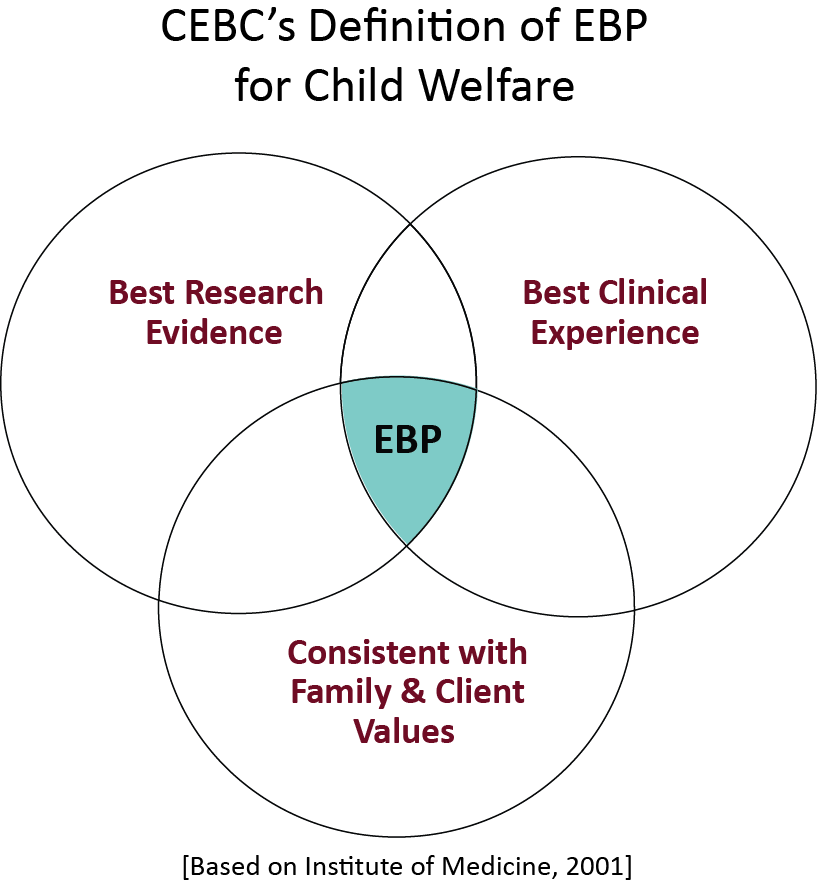Understanding Evidence-Based Practices
Definition of Evidence-Based Practice

The Institute of Medicine (IOM) defines evidence-based practice (EBP) as a combination of the following three factors: (1) best research evidence, (2) best clinical experience, and (3) consistent with patient values (IOM, 2001). These factors are also relevant for child welfare. The CEBC has adopted the Institute of Medicine’s definition for evidence-based practice with a slight variation that incorporates child welfare language:
- Best Research Evidence
- Best Clinical Experience
- Consistent with Family/Client Values
This definition builds on a foundation of scientific research while honoring the clinical experience of child welfare practitioners and being fully cognizant of the values of the families we serve.
Resources on Evidence-Based Practices:
- Understanding Evidence-Based Practices
- Types of Research Evidence
- Medicaid Reimbursement to Support the Use of Evidence-Based Practices
- The State of the Evidence for Intervention and Prevention Programs for Child Welfare-Involved Populations
Reference: Institute of Medicine. (2001). Crossing the quality chasm: A new health system for the 21st century. Washington, DC: National Academy Press.